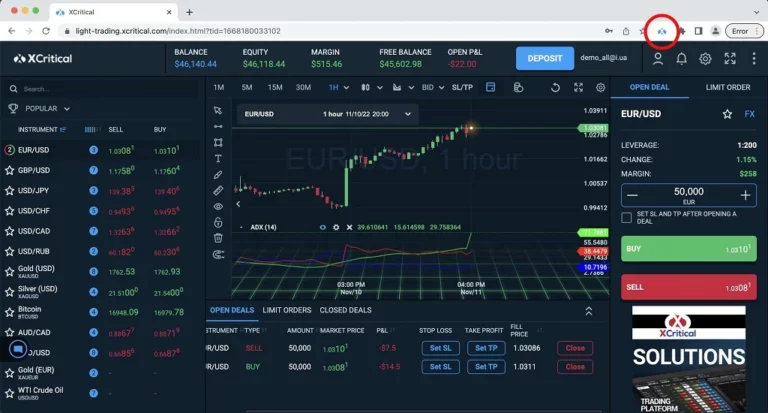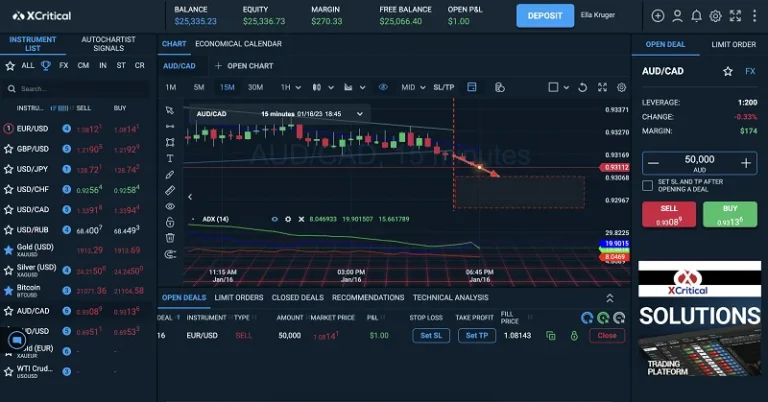Stocks and bonds that commerce on the OTC market are usually from smaller firms that don’t meet the requirements to be listed on a significant change. The over-the-counter market—commonly known as the OTC market—is the place securities that aren’t listed on the most important exchanges are traded. The middle tier is designed for companies that are still within the early to middle phases of development and development. These firms will have to have audited financials and meet a minimum bid worth of $0.01.
- Consumer discretionary (XLY) stocks, which incorporates automakers, were hit over fears of tariff impacts.
- Please independently evaluate and confirm the accuracy of any such output on your personal use case.
- Individual Retirement AccountsSelf-directed individual retirement accounts are supplied by Public Investing, a registered broker-dealer and member of FINRA & SIPC.
- To buy and sell securities on OTC Markets, you will want to open an account with a dealer that provides entry to these exchanges.
- Finally, due to the extremely speculative and better risk backdrop of investing in OTC securities, it’s essential to speculate only an sum of money that you’re comfortable losing.
While larger risk, OTC markets play an necessary position for traders looking to diversify into small caps and microcaps. With proper precautions taken, OTC markets can be a supply of considerable rewards for enterprising traders. The key is going in with practical expectations about volatility and doing intensive Proof of stake research to search out the hidden gems.
Do You Already Work With A Monetary Advisor?
The over-the-counter (OTC) market is a decentralized market where stocks, bonds, derivatives, currencies, and so on are traded instantly between counterparties. While the OTC market provides prospects for traders to entry a variety of securities and for smaller companies to boost capital—many storied corporations have handed by way of the OTC market—it also comes with risks. The OTC market’s lack of regulatory oversight and transparency makes it more prone to fraud, manipulation, and other unethical practices. Traders obtain direction from a market on shut (MOC) order to buy or sell a security at the market’s closing price. This execution takes place as close to to the tip of the trading session as possible, harnessing the last obtainable prices for that day. Valued for his or her role in consolidating trades during worth settlement periods, MOC orders enable traders’ participation in ultimate pricing with out requiring active monitoring of continuous fluctuations.
While OTC markets come with extra dangers, particularly round lack of transparency and light-weight regulation, additionally they provide alternatives for traders to get in early on firms with high growth potential. OTC markets in the U.S. are regulated by the Securities and Exchange Commission (SEC). However, the securities traded on OTC markets are not subject to the identical strict listing standards as main exchanges. Requirements round monetary disclosures and reporting frequency are typically much less stringent. The over-the-counter market refers to securities buying and selling that takes place outdoors of the most important exchanges. There are more than 12,000 securities traded on the OTC market, including stocks, exchange-traded funds (ETFs), bonds, commodities and derivatives.
Benefits And Downsides Of Otc Markets

These orders serve a variety of functions, such as hedging towards overnight market publicity or aligning with index funds and mutual funds whose benchmarks mirror closing costs. Despite their guarantee for market participation at shut, MOC orders current dangers; these embody uncertainties in execution because of end-of-day worth fluctuations. The security’s liquidity and the potential for significant worth changes at close are factors merchants must ponder.

Through historic volatility evaluation and market sentiment, merchants can anticipate spikes in volatility at market close; they leverage this volatility and make use of MOC orders. This strategic positioning permits them to reap the advantages of expected value movements. At a specific cutoff time, individuals must place MOC orders that will execute on the day’s closing value. These strategies purpose to benefit from the final value movements of the day by either reacting to after-hours information or predicting next-day market gaps.
You are responsible for establishing and sustaining allocations amongst belongings within your Plan. See our Investment Plans Terms and Conditions and Sponsored Content and Conflicts of Interest Disclosure. ETFs & ETPs.Before investing in an ETF, you must learn the prospectus fastidiously, which provides detailed information on the fund’s investment objectives, dangers, charges, and bills and unique threat profile.
Over-the-counter (otc) Financial Markets
OTC stands for “over-the-counter.” OTC markets facilitate trading of securities outside of formal exchanges just like the New York Stock Exchange. Oversold or undervalued situations sign an excellent time to buy, whereas overbought situations point out it could be time to promote. Use limit orders for OTC shares since they typically expertise large spreads between the bid and ask worth. Be prepared for doubtlessly giant value swings, especially with very small cap stocks generally identified as “penny stocks.” Only make investments money that you could afford to lose. Our InvestingPro platform offers investors a approach to https://www.xcritical.com/ display and analyze securities across all tiers of the OTC markets.

Digital Domain Holdings Limited begins trading today on OTCQX under the symbol “DDHLY.” U.S. investors can find present financial disclosure and Real-Time Level 2 quotes for the company on Modern markets must meet the wants of a broad spectrum of companies, connect an ecosystem of brokers-dealers, and empower diligent buyers to efficiently analyze, value and commerce securities. We present our real-time compliance information to the SEC and other regulators to enable them to oversee market exercise and monitor compliance with securities laws and rules. The broker-dealer community also consumes our digitalized data feeds, allowing them to whitelist securities, flag risks and automate inner AML/KYC compliance processes.
Companies listed here should be up-to-date with regard to regulatory disclosure necessities and keep accurate monetary information. The OTC market permits many types of securities to trade that might not usually have enough volume to list on an trade. But OTC markets supply the power for giant and small – indeed, tiny – shares and different securities to be listed with totally different requirements and, in some cases, no necessities at all. Explore the intricacies of currency swaps, their function, advantages, and risk management purposes. Learn how forex swaps differ from different financial instruments and their accounting treatment. Bonds.“Bonds” shall refer to company debt securities and U.S. government securities provided on the Public platform via a self-directed brokerage account held at Public Investing and custodied at Apex Clearing.
SEC rules include disclosure necessities and other rules that issuers and broker-dealers should observe. The SEC’s Rule 15c2-11 performs a important role in regulating the OTC markets by requiring broker-dealers to conduct due diligence on the issuers of securities before publishing quotations for these securities. OTC markets have a protracted historical past, relationship back to the early days of inventory trading within the 17th market on close otc trading century.